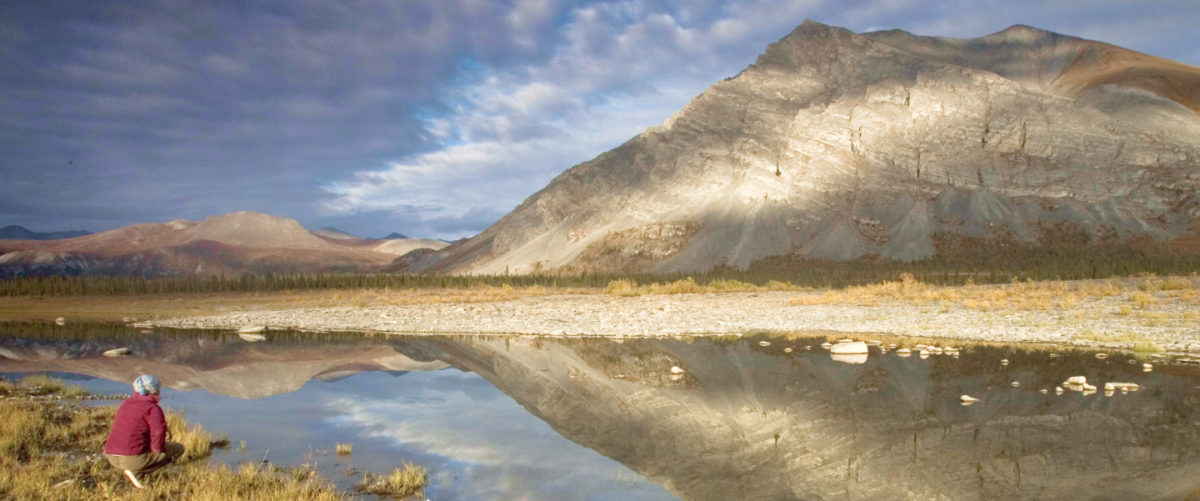The Interior Department Has a Legal Duty To Protect Our Public Lands
Published Apr 28, 2021

Biden’s promise to stop drilling on public lands is a necessary part of climate action.
On the campaign trail, Joe Biden was adamant about stopping oil and gas drilling on public lands. Now it’s time to actually make it happen.
Biden Has Laid The Groundwork To End Leasing Of Public Lands For Fossil Fuel Extraction
In the first few days of his presidency, President Biden signed two executive orders which directed the Department of Interior to temporarily halt the leasing of public lands for fossil fuel extraction. During that time, the administration pledged that it would review how to reform its lands leasing policy to best fight climate change in a scientifically informed manner.
While that new policy is still months away, the pause was a significant start. While public lands have the potential to be a major global carbon sink, federal lands currently produce nearly a quarter of all U.S. greenhouse gas emissions due to decades of extensive land leasing to private oil, gas, and coal extraction corporations at bargain basement rates. As one of the largest single historical contributors to global greenhouse gas emissions, the Interior Department’s continued leasing of public lands for the extraction of fossil fuels would threaten climatological stability which, in turn, would drastically impact endangered plant and animal species, exacerbate wildfires, degrade air quality, and threaten many freshwater sources.
The Department Of Interior Can – and Should – Ban Fracking
The continued degradation of public lands and the global ecosphere is not simply unacceptable, it is contrary to the laws that govern the Department of Interior. As the largest landholder in the U.S. and the principal public land management agency, the department is tasked under the Federal Land Policy Management Act with ensuring that public lands preserve “multiple uses” which requires lands be used for “a combination of balanced and diverse resource uses that take into account the long-term needs of future generations.” It must also ensure that a sustained yield of “renewable resources” (i.e., freshwater, fish, wildlife, plants) be maintained in perpetuity. In order to see that public lands are managed accordingly, Interior is mandated to “take any action necessary to prevent unnecessary or undue degradation of the lands” it manages, and has great latitude in how it prevents such degradation.
The continued leasing of these lands for fossil fuels amidst a global climate emergency simply does not comport with Interior’s multiple use and sustained yield management requirements and, in fact, would lead to undue and unnecessary degradation of public lands.
Food & Water Watch Spelled Out The Legal Case For Ending Fossil Fuel Leasing On Public Lands
In comments filed with Interior on April 15, 2021, Food & Water Watch laid out how the agency is legally required to cease its destructive leasing practices if it is to truly comply with its statutory requirements while living up to President Biden’s directive to “to listen to the science; to improve public health and protect our environment; to ensure access to clean air and water; … to hold polluters accountable, including those who disproportionately harm communities of color and low-income communities; [and] to reduce greenhouse gas emissions.”
Food & Water Watch further countered common industry talking points which seek simple “reform” of Interior’s leasing program, via the false solutions of carbon taxes and implementing carbon capture and sequestration systems which do not address the gravity of the climate crisis while still allowing continued extraction and combustion of polluting fossil fuels.
This comment period was an informal method to solicit input from the concerned public, but the Interior Department will need to engage in robust public outreach and environmental review of its leasing program as it goes forward with its next steps. As the department is legally required to pursue the least-harm alternative in land management, a thorough and candid environmental review of this program can only result in one outcome – a halt to all fossil fuel extraction on public lands. As this process unfolds, Food & Water Watch will continue its work of ensuring that ordinary people, when organizing together, have their voices heard by those in power. Together we can stop fossil fuel extraction on public lands and work towards a greener future.
Become a part of the movement to save our planet. A monthly donation of any amount powers this work.
Enjoyed this article?
Sign up for updates.
TO TOP


